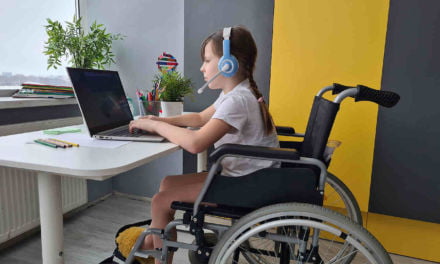The recent 2022 SEND Review has highlighted faults within the education system, what are its impacts and what can we learn from it to take into the new academic year and beyond?
The review outlined 3 main challenges within the education sector which needed to be addressed:
- Navigating the SEND system and alternative provision is not a positive experience for too many children, young people and their families.
- Outcomes for children and young people with SEND or in alternative provision are consistently worse than their peers across every measure.
- Despite the continuing and unprecedented investment, the system is not financially sustainable.- SEND Summary
Students within alternative provisions require more support with their learning due to their circumstances.
It is now abundantly clear how important it is they get the same educational facilities and opportunities as their peers within mainstream education so they are not left behind and their enthusiasm for learning doesn’t fade.
The government has proposed to improve standards and have a positive impact on the sector. They have several propositions, but essentially, they plan to:
- Establish a new national SEND and alternative provision system that informs children of their specific needs and allows parents to be confident that they are receiving adequate support.
- Deliver greater oversight and transparency on children and young people’s movements into and out of alternative provision
- Work with Ofsted and the Care Quality Commission to deliver an updated local area SEND inspection framework with a focus on arrangements and experiences of children and young people with SEND and in alternative provision
An investment of money proposes to support schools, teachers, students and parents, but this money needs to be distributed appropriately. This should then have a positive impact on learning so that optimal standards can be achieved for schools and students.
SEND review signifies positive reform for impact
A clear pathway of learning can assist students with their learning and feel value within their formative learning years. This can positively impact students within alternative provision settings as they can have clear direction when their education prospects may seem hopeless.
Ultimately, the intent, implementation and future impact need to be fixated on:
- Students
- Parents
- Teachers & SLT
So what can be done for significant impact to be experienced within the sector?
A Methodical Approach
Schools and teachers need to ensure that those students within alternative provision settings are clear on what they need to do with their education and this could be done with a clear plan in place.
This could be achieved by offering a gap analysis model for all students so they have a clear pathway of learning and can identify areas for improvement.
“Gap analysis forces you to think about your current state, your desired future state, the gaps between the two, and your action plan in a very clear and structured form. It provides a framework for people to collaborate on the first steps of creating a strategic plan.”
Adopting gap analysis for students can allow learning to be focused on clear objectives of what needs to be attained.
Choose the Best Service Possible for AP
The SEND Review highlights the importance of constantly liaising with external alternative provisions and data service providers that can benefit budgets, workloads and everyone involved.
It is crucial to work collaboratively within the education community and cater for learning preferences and consider those students who require enhanced support, such as school refusers or those with mental health issues.
A rising number of exclusions and those opting for home-schooling has resulted in alternative provisions needing further support and regulation. Everyone is entitled to education so it’s imperative to focus on what educational avenue and resource specifically suit the learner and school.
Parents also need more communication opportunities to voice their opinions and enable them to be fully involved. How can this be done? How can they get involved more with their child’s education?
Efficiency Improves Impact
What was raised within the review is the lack of a positive experience and outcomes for students within alternative provisions which could be addressed through the full use of EdTech sources.
The power of EdTech and online learning has been noticed throughout recent years. According to research:
“Online learning through different methods typically requires 40–60% less time than traditional classroom learning.”
The speed and efficiency online learning can have for learners can be immense. When effectively deployed for learners that have clear learning pathways and a network of support, their learning can be expansive.
Teachers can also benefit from its impact. A reduction in teacher workload could be achieved if appropriate measures are put in place. Choosing the most suitable solution, especially if online, can allow assessments, marking and the learning process to be sped up significantly.
This can also allow Senior Leadership Teams (SLT) and Newly Qualified Teachers (NQTs) the opportunity to focus more on key areas within their profession.
Ensure your Settings Offer as Much Support as Possible
Alternative provisions can be extremely beneficial online, but it’s important to know what your AP settings should include so be sure to refer to the SEND Review.
Children need to be safeguarded and one-to-one support from UK-qualified teachers otherwise they can become disenfranchised in education.
Alternative provision settings should offer more inclusivity for SEND learners and this can be done by visual or audio aids or customisable fonts and layouts when using technology.
A flexible learning approach and a pathway of learning can also allow a process of students being assessed effectively.
Students need to be assessed and safeguarded so they are in a safe learning environment, but also because it can allow them and their parents to visibly see their progression, attainment and their areas for improvement.
If you would like some information on an online alternative provision that you can trust to break learning barriers then visit EDClass. You can also call the team on 01909 568 338 or book a free online demonstration here.










